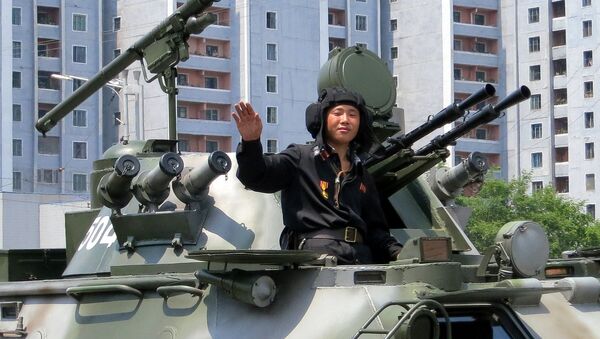However, now the US policy analysts say it was all a myth.
In their article in The National Interest magazine, they claim that “alliance policy and military planning needs to recognize a simple reality: no matter what North Korea threatens, it will assiduously seek to avoid war-triggering actions. North Korea’s own historical behavior and its widely presumed goal of regime survival confirms as much."
In other words, North Korea’s “primarily goal is regime survival, meaning that North Korea will not only take actions to safeguard its regime, but also avoid taking actions that put its survival at risk.” And its foreign policy “is bounded by a logic of consequences.”
The experts prove it by illustrating how North Korea “never escalated beyond isolated military attacks”.

“Today, North Korea threatens South Korean NGOs that send propaganda balloons into its territory, yet fires at the balloons and not the people launching them,” they say. “In repeated naval clashes with South Korea in the Yellow Sea, North Korea strikes some blows and suffers others, but it never escalates beyond the local clash. North Korea has had countless opportunities to escalate or broaden conflicts in a crisis, yet has consistently chosen restraint. Whatever North Korea’s rhetoric and motivations for violence, its track record shows a preference for not taking actions that would jeopardize the regime, and the North Korean escalation that everyone fears would do precisely that.”
“How confident are we of destroying 100 percent of the targets?”
“How far would a first-strike set back North Korea’s nuclear capabilities?”
“How can we disabuse North Korea of the perception that the alliance is pursuing regime change (the one scenario that would trigger devastating North Korean retaliation)?”
“The biggest risk facing Korea is not inadvertent war or North Korean escalation. It’s allowing Kim Jong-un to think North Korea has achieved a nuclear deterrent that gives it freedom of action on the Peninsula,” the authors therefore state.




